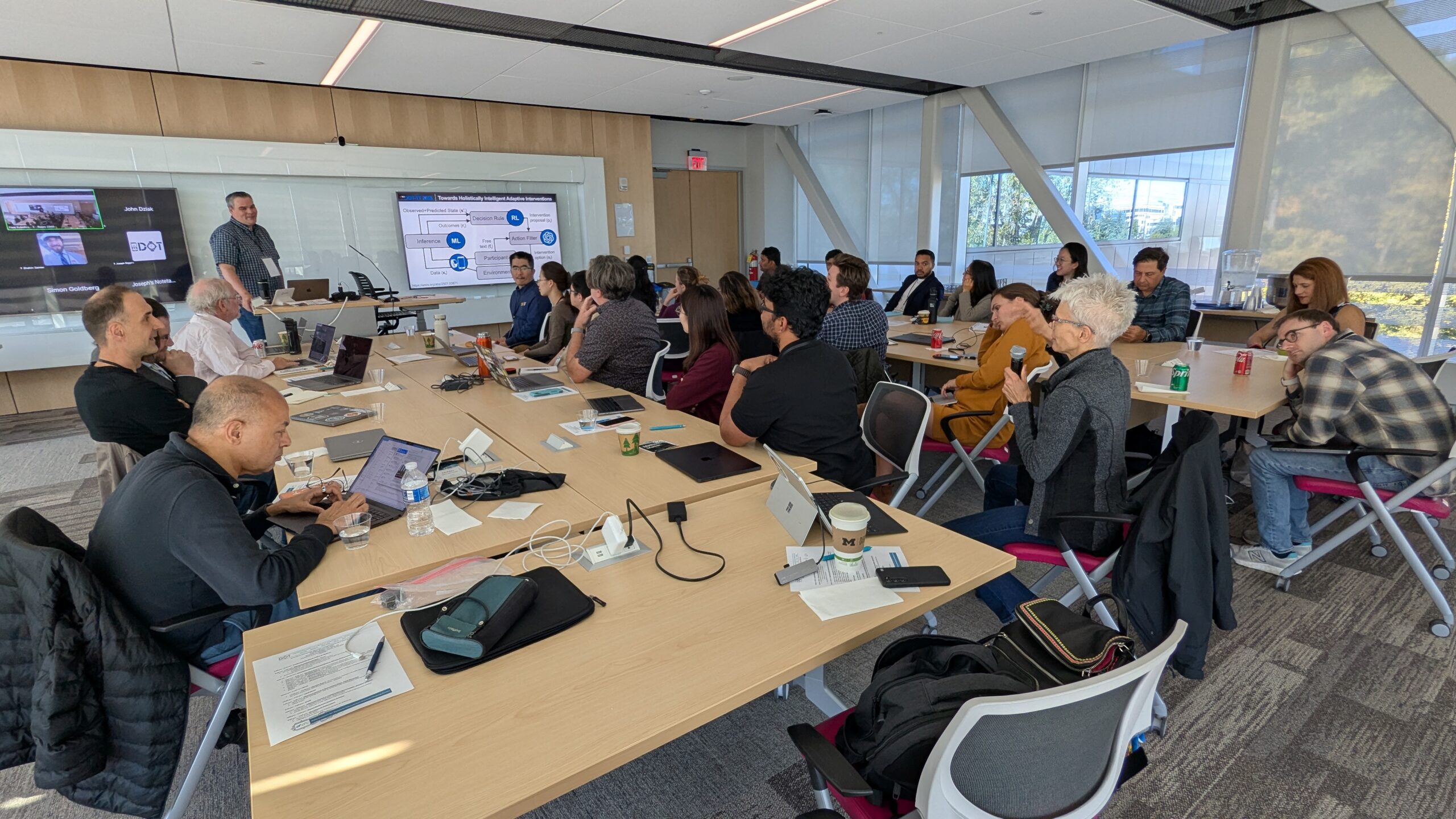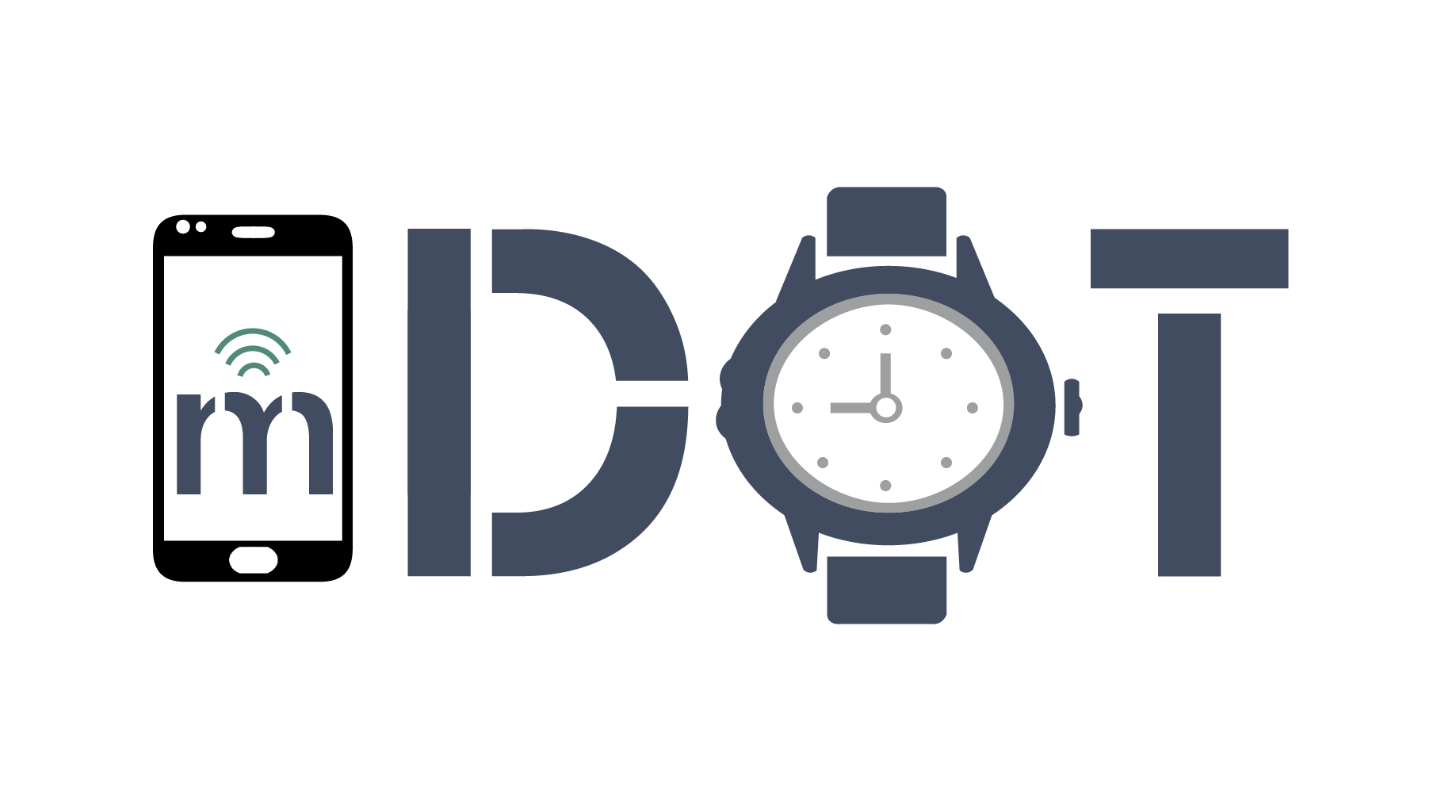
Decoding the Future: The Outcomes of the Generative AI-Powered mHealth Think Tank
Last week, the research community witnessed a pivotal moment as the Visioning Think Tank on Generative AI-Powered Interactive mHealth Interventions concluded at the University of Michigan Campus in Ann Arbor, MI. Hosted by the mDOT Center in conjunction the d3center (PI: I. Nahum-Shani – CP8), this dynamic and forward-thinking event successfully brought together an exclusive cohort of leaders to tackle the future of digital behavioral health. The high caliber of expertise and the foundational strategic roadmap developed promise to revolutionize how we approach personalized interventions.
An Exclusive Gathering of Cross-Domain Leaders
Held on Thursday, October 9, 2025, the think tank was intentionally designed to bring together scientific and industry leaders across disciplines critical to advancing digital health innovation. Participants represented fields such as behavioral science, artificial intelligence (AI), mobile health (mHealth), and human-computer interaction (HCI). Attendees included mDOT and d3center Investigators, alongside invited experts from institutions including Harvard University, the University of Michigan, UIUC, UCLA, and organizations such as Google.
This diversity of perspectives enabled rich, interdisciplinary collaboration focused on how new advancements in Generative AI—particularly large language models (LLMs)—can be integrated with emerging wearable and sensor technologies.
This breadth of knowledge allowed for truly interdisciplinary collaboration, focusing on how new advancements in Generative AI, particularly large language models (LLMs), could be combined with emerging wearable and sensor technologies.
The Core Discussions: Opportunities, Challenges, and Ethics
The primary goal of the Think Tank was to explore how the next generation of JITAIs (just-in-time adaptive interventions) might be designed and deployed using Generative AI. These models open new opportunities for developing intelligent, interactive health interventions that can create high-quality, contextually aware content across multiple media formats.
Structured discussions centered around several key themes:
Exploring New Frontiers: Participants examined how Generative AI could support the creation of JITAIs that respond dynamically to individuals in real time. Abstracts highlighted examples such as interactive self-reflection interventions powered by AI and the use of generative models to produce multimedia guidance for complex behavioral tasks.
Addressing Stress Management and Autonomous Agents: Researchers discussed leveraging LLMs to enhance self-reflection and promote healthier behaviors, building upon earlier studies that showed reductions in stress intensity and frequency through data visualization. A key focus was the path Toward Autonomous mHealth Agents—using multimodal LLMs and foundation models to integrate world knowledge with sensor inputs, enabling new methods of reasoning over noisy, real-world data.
Achieving Holistic Intelligence: Conversations also explored ways to broaden the state space of JITAIs, including how to use LLMs to support adaptive intervention agents capable of a more holistic understanding of participants.
Navigating Ethical and Technical Challenges: A central part of the discussions addressed the ethical, privacy, and algorithmic considerations associated with applying Generative AI in health contexts. Participants emphasized the importance of developing transparent, equitable, and trustworthy systems that safeguard participants while supporting innovation.
A Foundation for Transformative Potential
The Think Tank concluded with a synthesis of insights and outcomes that will guide the community’s next steps.
A major achievement was the development of a strategic roadmap outlining shared priorities for advancing Generative AI-powered JITAIs over the next three to five years. This roadmap identifies research gaps, design challenges, and opportunities for cross-disciplinary collaboration.
The momentum generated by this focused, collaborative effort is significant. It has laid the groundwork for continued partnerships and collective innovation aimed at improving the science and impact of AI-driven behavioral interventions. Ultimately, the outcomes of this meeting will help shape how Generative AI, wearable technologies, and JITAIs work together to enhance behavioral health in everyday life.








